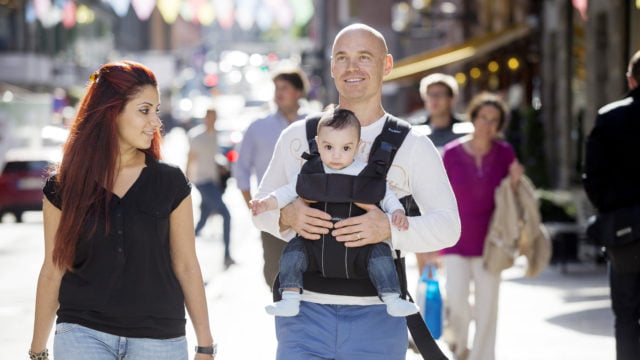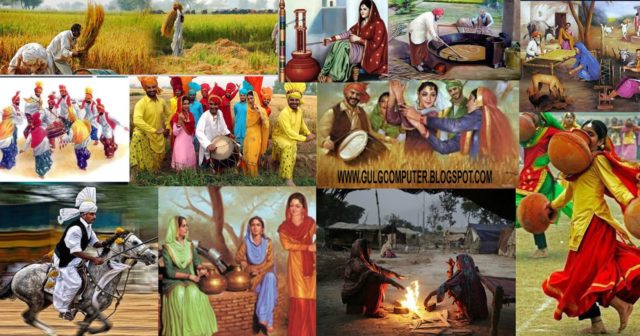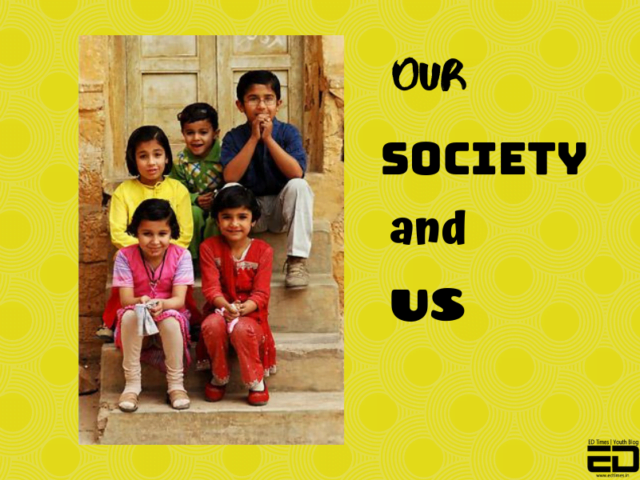Humans are social animals. In order to survive, we need to live in society.
Every society has a set of norms (unsaid rules), ideologies, beliefs, value system as well as notions of what is right and what is wrong.
When we live in a society, we imbibe all this, consciously or unconsciously, through the process of socialization.
So our socialization has a long-term effect on our personality, thinking process, behavior and perception (how our brain inputs stuff around us). It is also this process that sets gender roles, beauty standards and what can be considered acceptable in the public and private domain.
Shaping our attitude
Our attitude towards people, communities, things, objects, and customs are shaped by our socialization (though it can change by positive or negative experiences).
For instance, when children listen right from their childhood that the people of a particular community or religion are evil/dumb/good looking/smart, they believe that all the people of the community or religion are evil/dumb/good looking/smart. This can also lead to stereotyping or even discrimination.
Similarly, the practice of incest, endogamy and cross-cousin marriage can be the norm in certain societies while it can be a taboo in other societies.
Even the practicing of eating or not eating animal flesh is particular to certain societies. This is because people are taught since their childhood that the opposite practice is disgusting.
Also Read: The Indian Gotra System: To Prevent Incest or Is There Some Science Behind It?
Indian societies give more importance to community values like living in a joint family, holding joint/community property, etc. On the other hand, western societies are champions of individualism and thus private ownership is more popular.
Because of this, the idea of a welfare state and socialism may be naturally acceptable to us Indians as compared to the westerners where capitalism and liberalism might be more acceptable.
And because certain ideologies are more important to us, it dominates over our decision making and influences our actions too.
Sex role and beauty standards
We can blame our society for setting uneven sex roles as well as toxic standards of beauty because of which we have now been socialized to think that a particular gender should behave in a particular way or a particular set of features is the ideal standard of beauty.
In other words, we have ingrained these ideas so much so that we believe that there is nothing wrong in it. We have simply become used to this toxicity.
Sex role

Sex role is how people are expected to behave or have a personality, solely based on their gender.
There are two major reasons for this:
- Parents and other people who get to interact with kids reward behaviors that are considered to belong to a particular gender.
For example, young girls are rewarded for being gentle and well-mannered while boys are rewarded for being aggressive and sporty.
When a child sees that he/she is being rewarded for doing certain things, he/she will do it more frequently. Over a while, the child will internalize that behavior.
- Children imitate their parent’s behavior and crave for their approval.
Girls are approved when they imitate their mother and boys are approved when they imitate their father.
This approval encourages them to repeat this behavior. Eventually, they learn that a particular set of behavior (associated with particular sex) will be approved of and it is better to continue it.
Beauty standard
As for beauty standards, every society has a different definition of beauty. This is the reason why in India people spend a fortune on fairness products while in the USA they spend to have tanned skin.
But the rise of international icons due to globalization and the internet has made the westernized concept of beauty somewhat global, and this is another problem. People have developed a beauty standard and that standard is their internet star.
Not every person from all corners of the world can look like their global icon.
This is more dangerous than having a local standard of beauty because the local standard of beauty is set keeping in view the local features. Due to genetics, races and climatic adaptation, not everyone can look like the people of a particular place. And people need to accept that.
We need to accept the diversity of the human species, else we humans will look like assembly line-produced products.
Is Socialization Always Bad?
Though toxic beauty standards, as well as sex roles, may be traced back to socialization, it is not necessarily a bad thing.
It trains us to be fit for living in a society and identify the expectations, shared values and beliefs as well as what is acceptable to the larger section of their society, and pass it on to subsequent generations.
It also trains individuals for certain social roles that they will have to perform in the future, just because they are a part of society. Eg. Occupational roles, gender roles, and institutional roles like that in marriage and parenthood.
Though primary socialization plays an important role in shaping the worldview, personality, attitude, and behavior of a person, people can change in later. This is because, after socialization, re-socialization takes place throughout their adulthood.
Interaction with different people, having different experiences can bring about a change in them.
Also, every individual has a degree of control over his or her development, so not every member of the society will be identical. We, therefore, cannot always blame it on our primary upbringing.
Image Credits: Google Images
Source: Washington Family, Lumen, writemypapers.org
Find the blogger @parihar_tweets
You’d also like to read:
Romanian Lady Travels The World Photographing Beautiful Women, Compiles Atlas Of Beauty



































